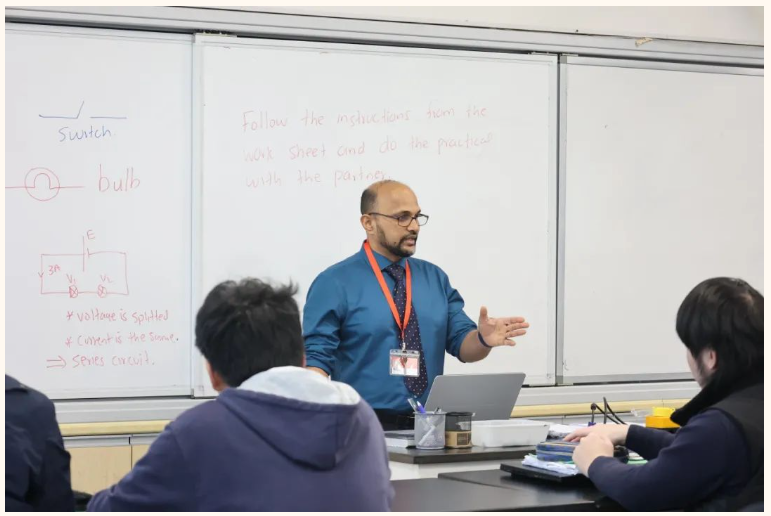Physics Open Class: Exploring Electromagnetism
Welcome back to our DHSZ Open Class series. In this edition, we step into Mr Kanthiah Muraleetharan’s physics class. He guides students to delve deep into understanding Lenz's Law and the Parallel Series Experiment, unraveling the mysteries of the electromagnetic field. Let's explore together how, under the expert guidance of this experienced teacher, students immerse themselves in the intricate world of electromagnetic phenomena.
Click here to watch the class video
What is the Class About?
Mr Muralee's class primarily covers electromagnetic induction. Using concrete examples, he introduces students to Faraday's Law and Lenz's Law, guiding them to delve into the principles behind these concepts. In the practical session, he leads students in exploring more electrical applications. Students work in pairs, studying the component connections in parallel and series circuits, mastering the methods of circuit construction. They observe and record how light bulbs illuminate, understanding the intensity of light, thereby gaining insights into how parallel and series connections give off different densities of light.
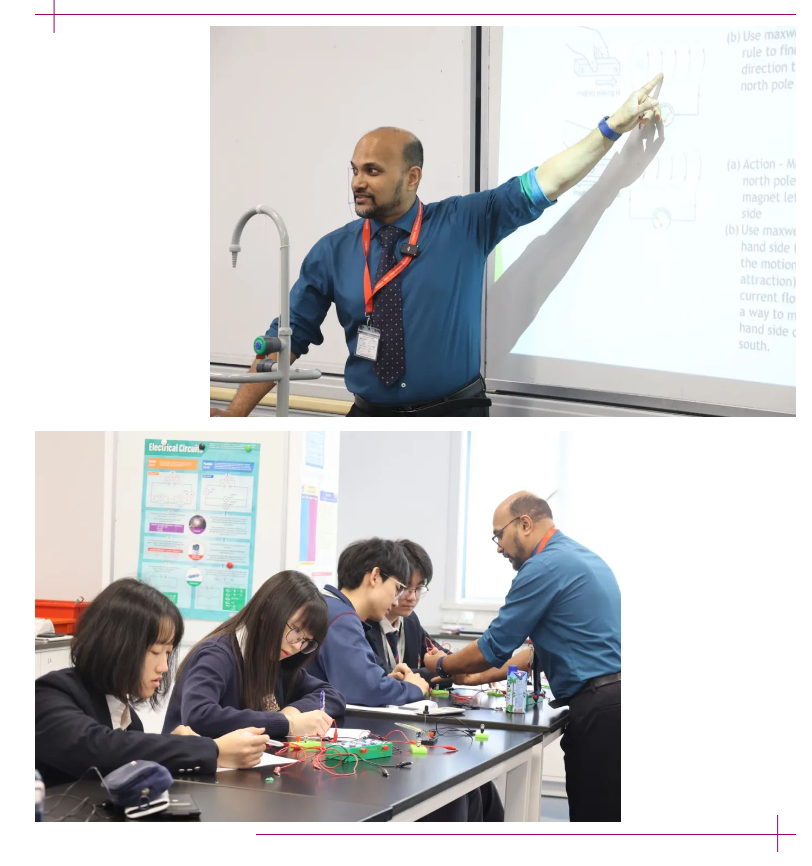
Teaching Style
Mr Muralee's teaching style focuses on meeting the learning needs of EAL students (English as an Additional Language). He assists students in understanding course content through visual aids and written texts, encouraging them to engage in practical and experiential learning. He mentions, "My students are EAL students, so they need visual aids and written text for easy viewing, reading, and discussing course content." In his teaching, Mr Muralee employs hands-on demonstrations to connect physics principles with students' everyday experiences. He shares, "My teaching style is mainly related to students' daily life experiences. I create stories relevant to the learning topic, using narratives to stimulate students' curiosity and sharing interesting anecdotes to make them interested in understanding this conceptual knowledge."
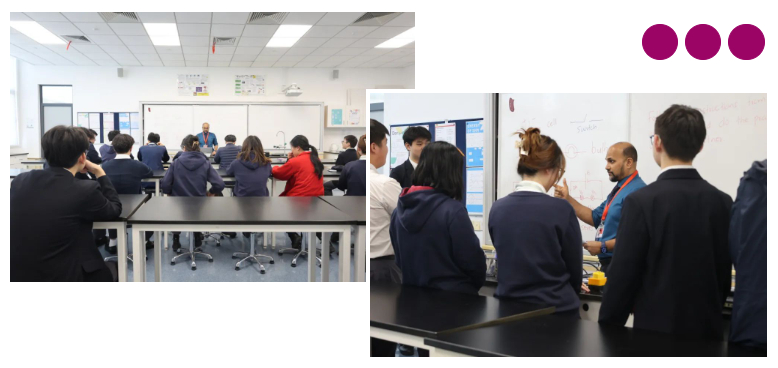
When teaching "Lenz's Law," he uses images, simulations, and actual experiments, such as the experiment where students observe a magnet passing through a copper tube. Students, through hands-on activities, experiments, and discussions, not only comprehend physics concepts like Lenz's Law but also apply them to everyday life. Through diverse learning methods, including storytelling, real-life connections, and teacher-student interaction, Mr Muralee strives to cater to the learning needs of each student, enhancing their overall learning capabilities.
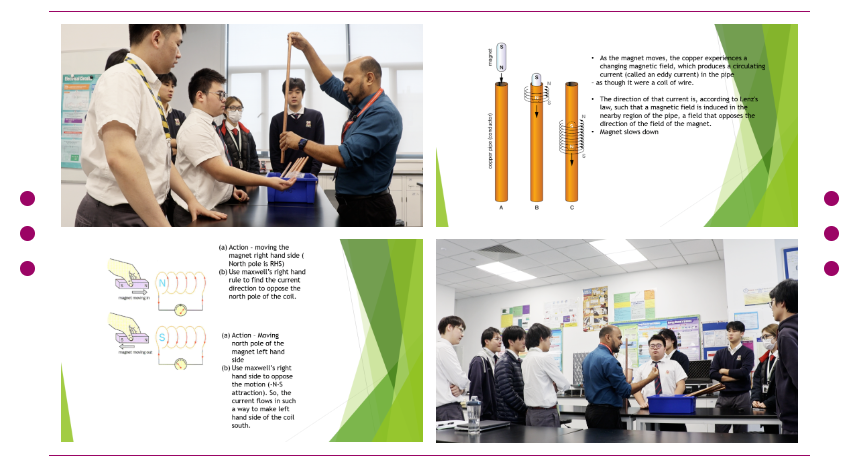
Education Philosophy
Mr Muralee's philosophy of teaching physics aims to arouse students' curiosity about the world, lead the students to be independent learners, guide them to recognise the natural world around them, gain deep insights into its patterns, learn relevant theories, and authentically express and predict their findings. He emphasises, "I believe that this is the way the DHSZ physics department leads our students in the subject of physics, and this is the educational philosophy of our school." By fostering unique insights into nature, Mr Muralee is committed to fostering a deep understanding of physics in the minds of his students, implementing our school's educational philosophy.
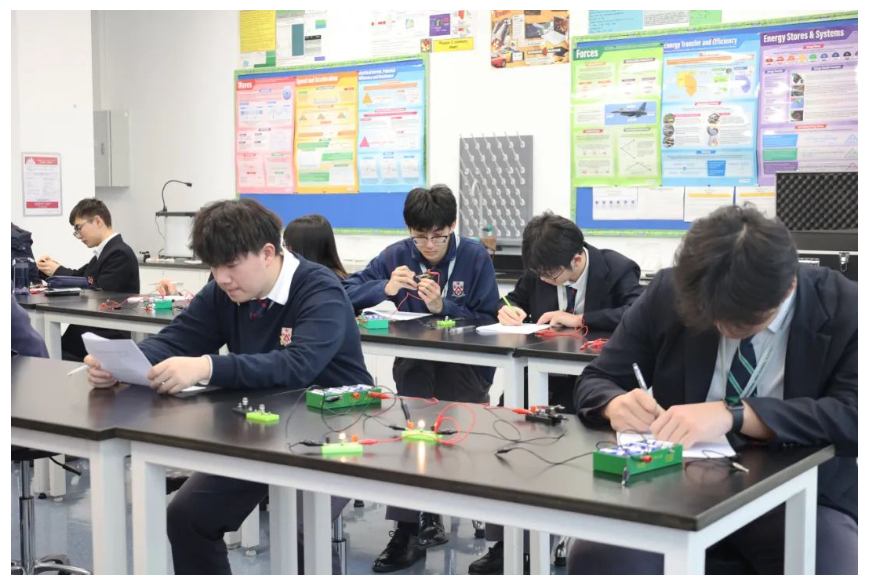
Why We Study Physics?
The motivation to learn is crucial, and therefore, Mr Muralee emphasises the numerous benefits of studying physics. One of these benefits is that students can choose to pursue engineering or physics courses in university, providing them with a broad range of global employment opportunities. Students could also become teachers, researchers, or any other institute of research, such as at university or NASA. He points out, "Even if you don't major in physics at university, studying physics is still beneficial. In the field of physics, you learn all the data, all the information at your disposal, using equations to solve problems. When you tackle challenging problems in physics, you are actually training yourself to solve personal or professional problems in the future." Mr Muralee believes that studying physics will cultivate students' thinking and cognitive development, enabling them to succeed in both personal life and their professional careers. He asserts that these gains extend beyond the classroom, leaving a profound impact on students' university studies and long-term development.
Advice from Mr Muralee
According to Mr Muralee, becoming an excellent physics student at our school is actually quite simple. "To be honest, language barriers won't affect your physics learning. Our teachers are well trained to teach students who have language difficulties," he emphasises. He believes that excelling in the classroom is not a challenging task: all it requires is attentive listening during class, seeking help from teachers and classmates when faced with difficulties, and fully utilising rich learning materials available online like YouTube. He advises, "To thoroughly grasp the concepts, regularly complete homework, promptly ask questions about unclear parts, and engage in extensive practice to enhance problem-solving skills. Finally, practice past papers with the time duration that you would have in the final exam." Following this advice, students are sure to be among the top performers come exam time.
